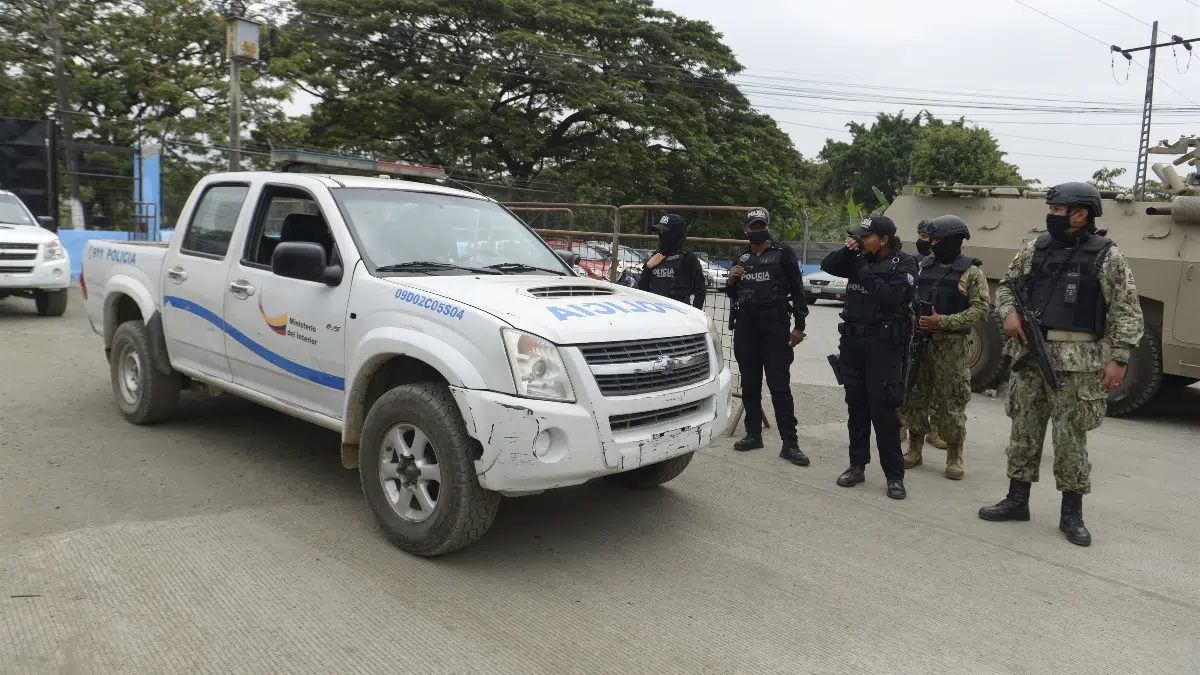By Mamela Fiallo
Ecuador expects 14 million rounds of ammunition and a second shipment with 10 million rounds of ammunition to fight organized crime.
The shipment is scheduled to arrive on May 8 to strengthen law enforcement.
This includes training by the US Federal Bureau of Investigation (FBI).

The FBI’s role will be to support the Ecuadorian Police.
It will focus particularly on investigations related to terrorism, drug trafficking, and organized crime.
Such support is intended to strengthen the operational and tactical capabilities of the National Police.
According to the police commander, 1,700 uniformed officers will be trained in close combat and operational techniques.
Likewise, the investigation and intelligence units “will have a new focus oriented to the classification of terrorism”.
Ecuadorian uniformed officers are undergoing “a reorganization, readjustment, retraining and strengthening of police capabilities to face the threat of terrorism.”
This was detailed by the Minister of the Interior, Juan Zapata.
The State and Public Security Council (Cosepe) declared the fight against terrorism. It claims that these irregular groups are a threat to the country.
As such, it recommended the use of lethal weaponry against organized crime.
After declaring organized crime groups “terrorists,” it also changed how they are fought and the treatment they receive at the judicial level.
Now the Armed Forces can actively participate in the fight.
The Minister of the Interior, Juan Zapata, met at the Intervention and Rescue Group (GIR) facilities with the general commander of the Police, Fausto Salinas, and the Institutional Command.
“We, in use of our legal attributions, in use of the endowment weapon and of all the coercive force of the State, will continue firm.”
“The country must recover the security and tranquility that it always had and that the National Police guaranteed for years,” said Zapata.
In addition, socially, the focus is changing.
The term “insecurity” has taken more prominence than criminality, given the fear of citizens.
For this reason, in the face of this renewed fight against crime, both organized and organized, the Minister of the Interior Juan Zapata declares:
“Fear has to be on the side of the terrorists, not the community.”
From the headquarters of the Joint Command of the Armed Forces, Defense Minister Luis Lara clarified:
“In the most conflictive areas of the national territory to combat and eradicate criminal groups and their allies who commit terrorist attacks and massacres, complying with the protocols and norms of international law and the legal provisions in force.”
“You can be sure that in actions against terrorist acts, we will not hesitate to put into practice all the capacity, experience, and professionalism of our soldiers.”
“It is time to say enough to the criminals and their allies,” he added.
Socially there is division.
Some celebrate the active participation of the Armed Forces.
The average citizen applauds the fight against crime. However, some accuse the force applied against criminals as excessive.
LEGAL CONSEQUENCES OF TERRORISM
The figure of “terrorism” will help to prosecute its perpetrators.
One of the most serious problems in Ecuador is impunity.
During the socialist period, the Penal Code and the Constitution were favorable to crime.
This allows for the prompt release of wrongdoers.
However, the crime of terrorism punishes with imprisonment of 10 to 13 years, the person who “individually or forming armed associations, provokes or maintains in a state of terror the population or a sector of it, through acts that endanger the life, physical integrity or freedom of persons or endanger buildings, means of communication, transportation, using means capable of causing havoc (…)”.
To achieve the arrest, one of the proposals of the Police is to regularize the confiscated weapons.
Commander Salinas has already presented a request for the Police to use the weapons seized from criminal groups.
70% of the violent deaths in the country so far have been produced with such weapons.
Ecuador’s Police seized 47,225 weapons between 2016 and 2023 alone, according to official data.
And so far, in 2023, the Police seized 1,722 weapons.
In the words of Charlton Heston:
“There is no such thing as a good gun. There is no such thing as a bad gun. A gun in the hands of a bad man is very dangerous. A gun in the hands of a good person is dangerous to nobody except the bad guys.”
So guns do exist.
It remains for the judicial system to allow their use and for the scales of justice to be tipped in favor of the victims rather than the perpetrators.
For now, it has the popular support to achieve this.
With information from LGI

